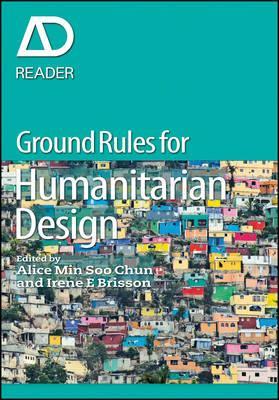 Delve deep into the complex issues surrounding humanitarian design Ground Rules in Humanitarian Design establishes essential foundations for thinking about humanitarian design and its role in global change. Outlining a vital framework for designing for impoverished and disaster-stricken communities, this informative guide explores the integration of culture, art, architecture, economy, ecology, health, and education. Experts on land, health, water, housing, education, and planning weigh in with best practices and critical considerations during the design process, and discussion of the environmental considerations and local materials/skills will broaden your understanding of this nuanced specialty. Richly illustrated, this guide combines graphic documentation of projects, maps, and data-tracking developments from Asia, Africa, and the Americas to underscore the complexities of this emerging and evolving field. The ambition to provide humanitarian architecture for areas in acute need is driving design innovation worldwide among both practitioners and educators.
Delve deep into the complex issues surrounding humanitarian design Ground Rules in Humanitarian Design establishes essential foundations for thinking about humanitarian design and its role in global change. Outlining a vital framework for designing for impoverished and disaster-stricken communities, this informative guide explores the integration of culture, art, architecture, economy, ecology, health, and education. Experts on land, health, water, housing, education, and planning weigh in with best practices and critical considerations during the design process, and discussion of the environmental considerations and local materials/skills will broaden your understanding of this nuanced specialty. Richly illustrated, this guide combines graphic documentation of projects, maps, and data-tracking developments from Asia, Africa, and the Americas to underscore the complexities of this emerging and evolving field. The ambition to provide humanitarian architecture for areas in acute need is driving design innovation worldwide among both practitioners and educators.
This book provides an indispensable resource for those engaged in the search for the sustainable inclusion of cultural code and compassion as a technology for design innovation. * Learn how to approach the problem of humanitarian design * Understand the cultural factors that play into development * Develop a new framework for planning post-disaster design * See how humanitarian design is pushing the industry forward While still in college, students are being given the opportunity to directly participate in programmes that provide vital facilities for communities abroad. While these international initiatives remain largely ad hoc, this book provides parameters for engagement and establishes best practices for approaching these projects with a global perspective. With expert insight and practical strategies on the ground, Ground Rules in Humanitarian Design is an essential resource for architects at any level.